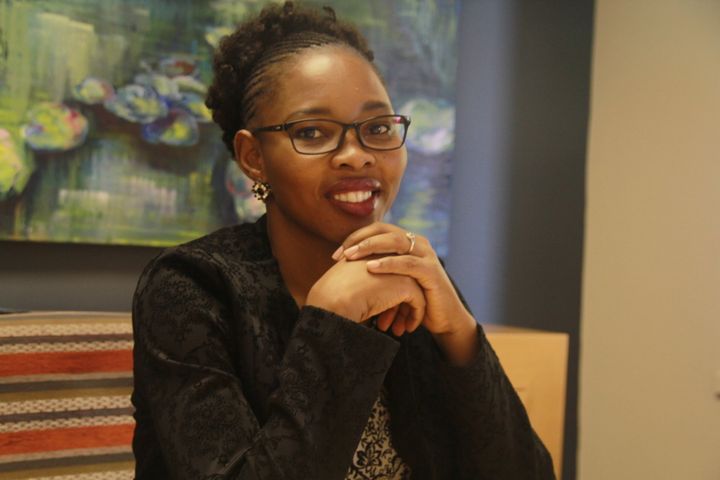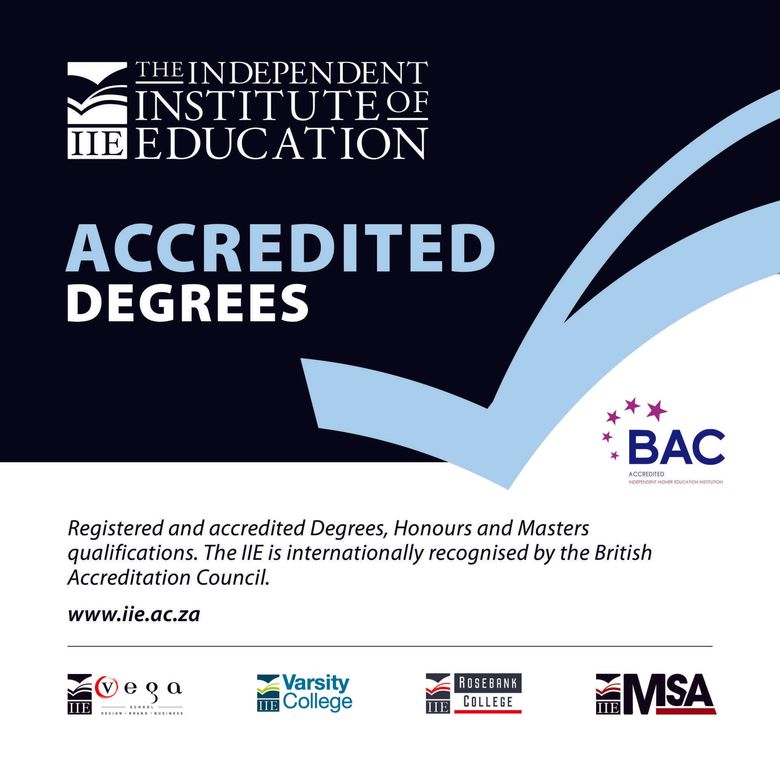CRAVING CONNECTION ON CAMPUS: BRIDGING THE DIVIDE IMPROVES FIRST-YEAR SUCCESS
The World of Work • April 9, 2018
NewSouth Africa's notoriously high drop-out rate among first year university students can be ascribed to a number of factors. One of these include a disconnect between lecturers and students and, if addressed, can make a difference not only to individual student success, but also to overall throughput statistics, an expert says.
"We hear a lot about this idea that modern students are different. That can be really daunting when standing in front of a group of students, as those differences are not clear and are wrapped up in further obscurity with references to 'digital natives', short attention spans and even 21st century skills - as if every lecturer should understand what that means and know how to adapt their teaching as a result," says Tshidi Mathibe, Head of Programme: Faculty of Commerce at The Independent Institute of Education, SA's largest private higher education provider.
She says given this context, it is important to focus on the fact that today's students, just like young adults of all generations past, are caught in between worlds and ways of being, with the new overlay of technology and an uncertain world further complicating matters.
"Therefore, lecturers who want to support their students' learning need to make sure that they engage with the students where they are at and take it from there. To do that, there are a few things that improve chances of success," she says. Paragraph
PIC: Tshidi Mathibe
"Whatever you say can be Googled students. It is therefore critical that you are a master of what you are teaching. It is also important that you are a role model in helping students understand that the lecture room is only where knowledge starts, because the real learning is being able to make sense of it all by drawing on many sources of information," says Mathibe.
"If you model confidence and curiosity, students will do the same and not find it quite as necessary to put you in your place with differences on detail."
IF YOU DON'T KNOW THE ANSWER, SAY SO
"If you do not know something, students are far more likely to learn from you modelling how to find out answers and will have greater trust in someone who does not simply pretend to know everything," Mathibe says.
"Young people have no need to see lecturers are omniscient. What they want is someone willing to engage with them to extend what you both know. You need to be the master of your discipline, but that is not the same as being its sole custodian."
BE HUMAN
Students will only engage with someone whose reactions they can predict and so, if you are consistent, engaging and human, and give them glimpses in to the things that motivate you, you provide them with the hooks and inroads for trusting you with their questions.
"If you are able to get students to connect with you as a competent and curious individual, the lecture room is easier to manage as people are far more likely to disrupt the classes of those they do not respect."
REMEMBER THAT THEY ARE HUMAN
Mathibe says that taking time to understand who the students are makes a world of difference to a lecturer's ability to select relevant examples and case studies.
"Understanding the range of learning styles they bring with them reminds you to offer a range of learning opportunities. This is not about pretending to identify with their music or even political preferences, but it is about consciously using accessible examples that enable them to anchor their learning," she says.
USE CASE STUDIES
Case studies are the most powerful of teaching tools as they provide stories around which theory can be organised and remembered.
"Your selection of case studies also speaks volumes about who you are and who you think they are. Case studies also offer you many opportunities to model problem solving, decision making and critical reasoning resulting in higher quality learning."
BRING IN THE EXPERTS
"Guest lecturers deepen understanding as they provide different perspectives and reinforce what you have been trying to teach," notes Mathibe.
"Guest lectures are also the perfect way to offer exposure to a multitude of voices on a topic that will enable more students to identify with someone who is an expert in the field you are trying to share, thereby also reducing boredom."
BRING IN THE TECH
"Use the technology to which students already have access and give them the responsibility to prepare for classes by finding examples, reading online or collaborating on a task. Teaching time can then be spent reflecting on the steps they have already taken, while the pressure is then on students to keep up rather than on you to drag them along."
"Ultimately what helps students learn and make a success of the challenges of their first year in higher education, is connection," says Mathibe.
"By connecting with students using these strategies one will be able to bridge both real and imagined divides between lecturers and students, and any good public university or private higher education institution must ensure that lecturers are fully trained and empowered to connect meaningfully in this way."
DID YOU KNOW?
The Independent Institute of Education (The IIE) is a division of the JSE-listed ADvTECH Group, Africa's largest private education provider. The IIE is the largest, most accredited registered private higher education institute in South Africa, and the only one accredited by The British Accreditation Council (BAC), the independent quality assurance authority that accredits private institutions in the UK. By law, private higher education institutions in South Africa may not call themselves Private Universities, although registered private institutions are subject to the same regulations, accreditation requirements and oversight as Public Universities.
The IIE has a history in education and training since 1909, and its brands - Rosebank College, Varsity College, The Business School at Varsity College and Vega - are widely recognised and respected for producing workplace-ready graduates, many of whom become industry-leaders in their chosen fields. The IIE offers a wide range of qualifications, from post-graduate degrees to short courses, on 20 registered higher education campuses across South Africa.













